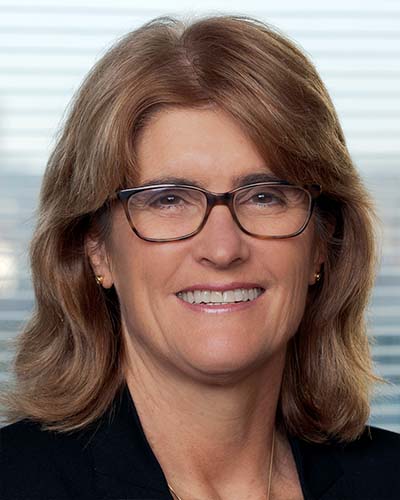Payments System Board Annual Report – 20231. About the Payments System Board
Our role
The Reserve Bank is responsible for ensuring the stability, efficiency and competitiveness of the payments system through the Payments System Board. As set out in the Reserve Bank Act 1959, it is the duty of the Payments System Board to ensure that the Bank’s payments system policy is directed to the greatest advantage of the people of Australia, and to ensure that the powers of the Bank under the Payment Systems (Regulation) Act 1998 and the Payment Systems and Netting Act 1998 are exercised in a way that, in the Board’s opinion, will best contribute to:
- controlling risk in the financial system
- promoting the efficiency of the payments system
- promoting competition in the market for payment services, consistent with the overall stability of the financial system.
Under the Payment Systems (Regulation) Act, the Bank has the power to designate payment systems and to set standards and access regimes for designated systems. The Payment Systems and Netting Act provides the Bank with the power to give legal certainty to certain settlement arrangements in order to minimise the risks of systemic disruptions from payment systems.
In addition, the Payments System Board has a duty to ensure that the powers and functions of the Bank under Part 7.3 of the Corporations Act 2001 are exercised in a way that, in the Board’s opinion, will best contribute to the overall stability of the financial system. These powers and functions relate to the supervision of central counterparties (CCPs) and securities settlement facilities (SSFs), which are key infrastructure supporting the clearing and settlement of transactions in financial markets. The Bank’s Payments Policy Department also acts as overseer of Australia’s high-value payments system, RITS.

Strategic priorities
The Payments System Board periodically sets priorities to guide the Reserve Bank’s payments policy work. When updating these priorities at its August 2023 meeting, the Board focused on developments in the payments system that could have significant implications for competition, efficiency and safety over the next few years. The Board also considered issues affecting payments and market infrastructures and their implications for financial stability. The Bank’s work agenda is focused on these strategic priorities. The Board will periodically review the strategic priorities as the payments landscape evolves.

Strengthen the resilience of payments and market infrastructures

Payments and market infrastructures play a crucial role in facilitating payments and financial risk management. The reliance of the economy and financial system on their services means that disruptions can have wide-reaching effects. The Bank will focus on ensuring these risks to payments and market infrastructures are managed appropriately. To achieve this, the Bank will:
- require market infrastructures to prioritise the management of aging infrastructure and adopt replacements and upgrades in a safe manner
- establish a risk-based framework for the oversight of key retail payment systems
- develop a policy position and guidance on outsourcing and vendor management for payments and market infrastructures
- require payments and market infrastructures to further uplift their cyber resilience with clearly defined cyber strategies and rigorous cyber-testing programs.
Advance and implement reforms for payments and market infrastructures

The Australian Government is modernising the regulatory frameworks for payments and market infrastructures. The Bank will assist the government with developing legislation to implement these reforms. The Bank will then focus on implementing any new regulatory responsibilities and assessing policy issues within its regulatory perimeter. To achieve this, the Bank will:
- assist the government with developing legislation for regulating payments and market infrastructures
- develop frameworks for using new supervisory and resolution powers for market infrastructures
- conduct a comprehensive review of retail payments regulation under a modernised Payment Systems (Regulation) Act.
Promote competitive, cost-effective and accessible electronic payments

Consumers and businesses are relying on electronic means of payment more than ever before. The Bank has an important role to play in promoting a payments system that delivers competitive, cost-effective and accessible electronic payments for consumers and businesses. To achieve this, the Bank will:
- reduce payment costs for small businesses by requiring industry to deliver merchant choice of debit card network
- encourage industry to deliver and promote additional fast payment capabilities to end users
- modernise the retail payments statistics collected and published by the Bank to account for new technologies and business models.
Enhance cross-border payments

The Bank is supporting international work under the G20 to make cross-border payments cheaper, faster, more transparent and more inclusive. The Bank has a key role to play in promoting priority initiatives in the Australian market that will, over time, help deliver better outcomes for Australian customers. To achieve this, the Bank will:
- contribute to implementing the G20 roadmap to enhance cross-border payments
- explore interlinking the NPP to fast payment systems in other jurisdictions.
Shape the future of money in Australia

Australians need safe, efficient and cost-effective payment options, both now and in the future. As the payments landscape changes, the Bank will help shape the future of money in Australia by exploring the case for new digital forms of currency, and by ensuring cash remains a viable means of payment for those who need or want it. To achieve this, the Bank will:
- determine whether a policy case for a CBDC exists
- support innovation and resilience in wholesale digital payments
- support access to physical cash.
Payments System Board members (August 2023)
The Board comprises up to eight members: the Governor; a representative of the Reserve Bank (currently, the Deputy Governor); a representative of the Australian Prudential Regulation Authority (APRA) (currently the Chair); and up to five other non-executive members appointed by the Treasurer. Members of the Board during 2022/23 and details of their qualifications and experience are shown below.
During the year, Catherine Walter AM, Wayne Byres and Greg Storey retired from the Board. Ross Buckley and Michelle Deaker were appointed to the Board, with effect from 1 August 2023, and Gina Cass-Gottlieb was reappointed to the Board for a further five-year term, with effect from 1 August 2023.
Philip Lowe

BCom (Hons) (UNSW), PhD (MIT)
Governor and Chair
Governor since 18 September 2016
Term ends 17 September 2023
Philip Lowe’s appointment as Governor took effect in September 2016. Prior to that, he held various senior positions at the Reserve Bank – including Assistant Governor (Financial System), Assistant Governor (Economic) and, from February 2012, Deputy Governor – where he was responsible for overseeing economic and policy advice to the Governor and Reserve Bank Board. He spent two years at the Bank for International Settlements working on financial stability issues. Mr Lowe has authored numerous papers, including on the linkages between monetary policy and financial stability. He is a signatory to the Banking and Finance Oath.
Other roles
Chair – Reserve Bank Board
Chair – Council of Financial Regulators
Chair – Bank
for International Settlements Committee on the Global Financial System
Chair – Financial Markets
Foundation for Children
Member – Financial Stability Board
Member – Trans-Tasman
Council on Banking Supervision
Director – The Anika Foundation
Michele Bullock

BEc (Hons) (UNE), MSc (LSE)
Deputy Governor and Deputy Chair
Appointed Governor-designate on 14 July 2023
Deputy Chair since 29 October 2016
Term as Deputy Governor ends 17 September 2023
Michele Bullock was appointed as Deputy Governor on 2 April 2022. She is Deputy Chair of the Reserve Bank Board and Deputy Chair of the Payments System Board. Prior to this role, Ms Bullock was Assistant Governor (Financial System), responsible for the Bank’s work on financial stability and oversight of the payments system. Ms Bullock has also held a variety of senior management positions in the Bank, including Assistant Governor (Business Services), Assistant Governor (Currency), Adviser for the Currency Group and Head of Payments Policy Department. Ms Bullock is a signatory to the Banking and Finance Oath.
Other roles
Deputy Chair – Reserve Bank Board
Member – Bank for International Settlements Committee on Payments and Market Infrastructures
Member – Chief Executive Women
Director – The Anika Foundation
Ross Buckley

B.Econ, LLB (Hons) (UQ), PhD (UNSW), LLD (Melbourne)
Non-executive member
Member since 1 August 2023
Present term ends 31 July 2028
Ross Buckley’s key research areas include fintech, regtech, central bank digital currencies and cryptoassets more generally. He has consulted to government departments in over a dozen countries and to three multilateral institutions. Dr Buckley has written six books and over 175 journal articles and book chapters. He has twice been a Fulbright Scholar, at Yale and Duke universities.
Other roles
Australian Research Council Laureate Fellow and Scientia Professor of Law – University of New South
Wales
Chair – Digital Finance Advisory Panel, Australian Securities and Investments
Commission
Member – Consultative Panel, Australian Securities and Investments
Commission
Fellow and Academic Member – European Banking Institute, Frankfurt
Gina Cass-Gottlieb

BEc (Hons), LLB (Hons) (Sydney), LLM (Berkeley)
Non-executive member
Member from 15 July 2013 to 14 July 2018
Reappointed from 1 August 2018
Present term
ends 31 July 2028
Gina Cass-Gottlieb has extensive expertise in competition law and economic regulatory advice and in the regulation of payments in Australia. She was appointed Chair, Australian Competition and Consumer Commission on 21 March 2022. Prior to this, Ms Cass-Gottlieb was a senior partner in Gilbert + Tobin’s competition and regulation practice, advising and representing corporations, industry associations, government and non-government agencies. She has over 25 years’ experience, including advising in relation to access arrangements in a range of sectors across the economy. Ms Cass-Gottlieb attended the University of California, Berkeley, as a Fulbright Scholar.
Other roles
Chair – Australian Competition and Consumer Commission
Michelle Deaker

BSc (Hons 1) (Sydney), MSc (Sydney), PhD (UC)
Non-executive member
Member since 1 August 2023
Present term ends 31 July 2028
Michelle Deaker is a Founding Partner and the Managing Director of OneVentures, a venture capital firm that focuses on technology and healthcare sectors. Dr Deaker has over 20 years’ experience in the development of high-growth technology companies in Australia and the United States. She has served on the boards of large and small listed and unlisted companies and has a strong background in Australian research and development as well as expertise in global business expansion. Prior to establishing OneVentures in late 2006, Dr Deaker established IT enterprise business Networks Beyond 2000 and later E Com Industries, a leading prepaid card and electronic voucher provider in several countries. Dr Deaker is a member of the Australian Institute of Company Directors and Chief Executive Women.
Other roles
Founding Partner and Managing Director – OneVentures
Director – Employment Hero
Director
– Phocas Group
Director – Buildkite
Scott Farrell

BEc (Sydney), LLB (Hons) (Sydney), PhD (UNSW)
Non-executive member
Member since 23 March 2022
Present term ends 22 March 2027
Scott Farrell has more than 25 years’ experience in financial markets and financial systems law. In 2016, he was appointed to the Australian Government’s FinTech Advisory Group at its formation and in 2018 was appointed its co-Chair. Dr Farrell has led a number of reviews for the Australian Government, including the Review into Open Banking in Australia in 2017, the Inquiry into Future Directions for the Consumer Data Right in 2020 and the Review of the Australian Payments System in 2021.
Other roles
Strategic Counsel – King & Wood Mallesons
Adjunct Professor – School of Private and
Commercial Law, University of New South Wales
Chair-elect – International Standards Organisation
TC 307 Blockchain and Distributed Ledger Technologies
John Lonsdale

APRA-appointed member
Chair – Australian Prudential Regulation Authority
Member since 1 November 2022
John Lonsdale was appointed as Chair of APRA on 31 October 2022 after joining APRA as Deputy Chair on 8 October 2018. In his Deputy Chair role, Mr Lonsdale was responsible for oversight of Australia’s banking sector as well as oversight of APRA’s work on culture and remuneration, building APRA’s crisis-resolution capability and strengthening APRA’s collaboration with peer regulators. Mr Lonsdale worked for the Australian Treasury for over 30 years prior to joining APRA. He was a member of the Treasury’s Executive and, in his role as Deputy Secretary for the Markets Group, he had responsibility for financial system, consumer and foreign investment policy. In 2014 he led the Secretariat for the Financial System Inquiry.
Other roles
Member – Council of Financial Regulators
Member – Financial Stability Board Standing
Committee on Supervisory and Regulatory Cooperation
Member – Trans-Tasman Council on Banking
Supervision
Deborah Ralston

BEc, Dip Fin Mgt, MEc (UNE), PhD (Bond)
Non-executive member
Member since 15 December 2016
Present term ends 14 December 2026
Deborah Ralston has more than 25 years of board-level experience in education, banking, superannuation and fintech sectors. Dr Ralston has held senior leadership and research roles in Australian universities, most recently as the Executive Director of the Centre for Financial Studies. Her expertise in public policy is reflected in appointments to the federal government’s Retirement Income Review Panel, the Comprehensive Income Products for Retirement Framework Advisory Committee and as inaugural Chair of the Australian Securities and Investments Commission’s Digital Finance Advisory Board. Dr Ralston is currently a Professorial Fellow at Monash University Business School, with research interests in financial regulation and superannuation and is a Fellow of CPA Australia and the Australian Institute of Company Directors.
Other roles
Professorial Fellow – Monash University
Chair – Advisory Board, Household
Capital
Director – SuperEd Pty Ltd
Director – SMSF Association
Member –
Advisory Board, Connexus Institute
Member – Future Fund Board of Guardians
Retirements from the Payments System Board
Catherine Walter retired from the Payments System Board on 2 September 2022.
Wayne Byres retired from the Payments System Board on 30 October 2022.
Greg Storey retired from the Payments System Board on 31 July 2023.
Catherine Walter AM

LLB (Hons), LLM, MBA (Melbourne)
Non-executive member
Member from 3 September 2007 to 2 September 2022
Catherine Walter brings substantial experience and expertise in financial services and corporate governance across many industry sectors, including banking, insurance, funds management, health services, medical research, education, telecommunications and resources. Mrs Walter is a solicitor and company director, who practised banking and corporate law in major city law firms, culminating in a term as Managing Partner of Clayton Utz, Melbourne. She was a Commissioner of the City of Melbourne and for more than 20 years has been a non-executive director of a range of listed companies, government entities and not-for-profit organisations. Mrs Walter was awarded a Centenary Medal in 2001 for her service to Australian society in business leadership. In the 2003 Australia Day Honours, she was awarded a Member of the Order of Australia for her service to business, particularly as a director of a range of public companies, to the arts, to the law, and to the community through the Melbourne City Council. Mrs Walter is a Fellow of the Australian Institute of Company Directors.
Other roles
Chair – Helen Macpherson Smith Trust
Chair – Melbourne Genomics Health Alliance
Director
– Australian Foundation Investment Company
Director – Barristers’ Chambers
Limited
Non-executive Member – Export Finance Australia
Resolution passed by the Payments System Board – 25 August 2022
On the occasion of Catherine Walter’s final meeting on the Board, having served three terms covering 15 years, members paid tribute to her outstanding contribution to the Board’s work. Mrs Walter’s active questioning and probing role as a Board member, based on her wide experience in the legal and financial sectors, greatly contributed to the development of payments policy in Australia. On behalf of all members, the Governor expressed appreciation of Mrs Walter’s clear insights on policy and governance matters, her strong interest in innovation, her ability to distil the essence of complex issues and her strong support for the work of the Bank’s staff. Members wished her well in the future.
Wayne Byres

BEc (Hons), MAppFin (Macquarie)
APRA-appointed member
Chair, Australian Prudential Regulation Authority
Member from 9 July 2014 to 30 October 2022, upon resignation as Chair of APRA.
Wayne Byres has a wealth of experience and knowledge of prudential supervision and banking practices. He was appointed as a Member and Chair of APRA from 1 July 2014 for a five-year term, and was subsequently reappointed on 1 July 2019 for a further five-year term. His early career was at the Reserve Bank, which he joined in 1984. He transferred to APRA on its establishment in 1998 and held a number of senior executive positions in the policy and supervisory divisions. In 2004, Mr Byres was appointed Executive General Manager, Diversified Institutions Division, with responsibility for the supervision of Australia’s largest and most complex financial groups. He held this role until the end of 2011, when he was appointed as Secretary General of the Basel Committee on Banking Supervision, based at the Bank for International Settlements in Basel. Mr Byres is a Senior Fellow of the Financial Services Institute of Australia and is a signatory to the Banking and Finance Oath.
Other roles
Member – Basel Committee on Banking Supervision
Member – Bank for International Settlements
Group of Governors and Heads of Supervision
Member – Council of Financial Regulators
Member
– Trans-Tasman Council on Banking Supervision
Resolution passed by the Payments System Board – 25 August 2022
On the occasion of Wayne Byres’ final meeting on the Board, having served eight years, members recorded their appreciation of his valuable contribution to payments policy in Australia. On behalf of all members, the Governor paid tribute to Mr Byres’ professionalism and dedication, his constructive and collegiate style and his strong support for the work of the Bank in the payments area. Members recorded their appreciation of Mr Byres’ dedication to public policy in Australia in a career spanning more than three decades, thanked him for his service to the nation and wished him well in the future.
Greg Storey

Non-executive member
Member from 1 August 2018 to 31 July 2023
Greg Storey is an experienced cards and payments industry professional, with specialist knowledge in the evolution and operation of debit cards, credit cards and payments systems. He was Vice-President and Head of Visa Checkout, Asia Pacific from 2012 to 2016. Mr Storey had over 20 years’ experience with Visa, spanning the rollout of numerous VisaNet-related solutions and services, product and strategy, micropayments solution (Payclick) and Visa Checkout (and V.me) products across the Asia-Pacific region. Prior to his roles at Visa, Mr Storey worked at St. George Bank in various cards and payments roles, as CIO of an independent payment solution provider, and established and oversaw merchant point of sale and ATM switching operations.
Resolution passed by the Payments System Board – 25 May 2023
On the occasion of Greg Storey’s final meeting, members paid tribute to his professionalism and dedication during his term as a member of the Board. On behalf of all members, the Governor expressed appreciation for Mr Storey’s contribution to the formulation of payments policy, drawing on his extensive experience in the payments industry. He thanked Mr Storey for his constructive approach and strong support for the work of the Bank in the payments area during his term. Members thanked Mr Storey for his service to the Bank and the nation and wished him well in the future.
Meetings of the Payments System Board
The Board met four times in 2022/23. Meetings were held at the Bank’s Head Office in Sydney.
| Attended | Eligible | |
|---|---|---|
| Philip Lowe (Governor) | 4 | 4 |
| Michele Bullock (RBA) | 4 | 4 |
| Wayne Byres (APRA)(a) | 1 | 1 |
| John Lonsdale (APRA)(b) | 3 | 3 |
| Gina Cass-Gottlieb | 4 | 4 |
| Scott Farrell | 4 | 4 |
| Deborah Ralston | 4 | 4 |
| Greg Storey(c) | 4 | 4 |
| Catherine Walter(d) | 1 | 1 |
|
(a) Wayne Byres’ term on the Board ended on 30 October
2022. |
||

Conflicts of interest
The Bank has a number of distinct areas of responsibility in the Australian payments system: it operates and participates in Australia’s real-time gross settlement (RTGS) system, RITS; it provides transactional banking services to the Australian Government and its agencies; and it is principal regulator of the payments system through the Board. This combination of functions is conventional internationally, and the Board has formally adopted a policy on the management of actual or perceived conflicts of interests arising from the Bank’s different roles.
The policy is published on the Bank’s website and focuses on interactions between the Bank’s Payments Policy Department and Banking Department.[1] Details of the steps taken to achieve compliance with the policy, including the minutes of informal meetings between departments, are audited every three years by the Bank’s Audit Department, with the results presented to the Board. The most recent audit was conducted in March 2022.
In the case of the Bank’s oversight of RITS, the Board plays a governance role in managing conflicts of interest. While an internal Financial Market Infrastructure Review Committee has the formal responsibility to review and approve assessments of other payments and market infrastructures, the Board retains primary responsibility for approving the staff’s periodic assessments of RITS.
Accountability and communication
The Payments System Board seeks to ensure a high degree of transparency and accountability around its actions through regular reporting to the Australian Government and through the Bank’s communication program.
Accountability
The Bank has a range of reporting obligations that serve to ensure the accountability of the Board. Under the Reserve Bank Act 1959, the Payments System Board is required to:
- inform the Government, from time to time, of the Bank’s payments system policy (section 11(1)(b))
- prepare and give to the Treasurer a report that covers certain matters relating to the standards that the Bank determines under section 827D of the Corporations Act 2001 and developments in the clearing and settlement industry that are relevant to Australia’s financial stability (section 25M(1)).
This annual report addresses these requirements and is the primary accountability vehicle for the Bank’s payments system responsibilities. The House of Representatives Economics Committee holds twice-yearly public hearings at which the Bank presents an opening statement on the economy, financial markets and other matters – including payments system matters – related to the Bank’s operations, and responds to questions from Committee members. These hearings may include discussion of developments in the payments system and the Bank’s payments system policy.
The broader accountability of the Bank includes its obligations under the Public Governance, Performance and Accountability Act 2013. The Bank’s annual report, including the annual performance statement, covers the Bank’s role in the payments system.
Communications
The Bank regularly communicates on payments system issues and its regulatory and oversight work through media releases, speeches, research publications, the Bank’s website, and community and industry liaison. The Bank also engages in various international forums relating to payments and market infrastructures.
Media releases around Board decisions
The Bank publishes a media release in the afternoon immediately following each quarterly Board meeting, outlining matters that were discussed by the Board and foreshadowing any forthcoming documents to be released by the Bank. Media releases also accompany any major announcements following decisions taken by the Board.
Speeches
During 2022/23, senior Bank staff gave a number of public speeches and participated in discussion panels on various payments system-related topics, including developments in real-time payments in Australia, policy issues associated with the shift to electronic payments, and innovations in the payments system such as stablecoins and CBDCs. Audio files and transcripts of speeches are published on the Bank’s website.
Submissions and parliamentary appearances
Where appropriate, the Bank makes submissions to parliamentary and federal government committees and inquiries on payments and market infrastructure-related topics. During 2022/23, the Bank made submissions to the Senate Economics Legislation Committee on the Inquiry into the Digital Assets (Market Regulation) Bill 2023 and to the Australian Competition and Consumer Commission on the proposed merger of the two largest cash-in-transit operators. The Bank also appeared before hearings regarding ASX’s CHESS replacement program. Copies of the Bank’s submissions can be found on the Bank’s website.[2]
Research and statistics
To support the Bank’s research and policy work, statistics on retail payments are collected by the Bank on a monthly basis from financial institutions, card companies and other payments system participants. Data on debit and credit cards, ATM transactions, merchant fees, bulk electronic transfers, NPP transactions and cheques provide insights on how individuals and businesses make and receive payments. These aggregated data are published as part of the statistical tables on the Bank’s website.[3] In 2022/23, the Bank also started publishing system availability statistics for RITS.
The Bank also conducted its sixth triennial survey of consumer payments between October and early December 2022. The results from the Consumer Payments Survey (CPS) were published in two Bulletin articles in 2023.[4] The survey provided the first comprehensive snapshot of consumer payments since the COVID-19 pandemic and showed an accelerated shift away from cash for transactional purposes. Consumers are instead using electronic and convenient newer payment methods. A research discussion paper with more comprehensive results will be released later in 2023.
Liaison activity
The Bank engages with a wide range of stakeholders in Australia and overseas.
Domestic liaison
The Bank engaged with a range of participants in the payments industry to discuss policy issues and market developments. During 2022/23, a key focus of this stakeholder engagement continued to be on implementing various policy actions from the Bank’s comprehensive Review of Retail Payments Regulation, which concluded in 2021. In particular, Bank staff engaged with a wide range of payment system participants and users in relation to the Bank’s expectations on least-cost routing (LCR) of debit transactions, especially the extension of LCR to mobile wallet transactions. Bank staff also continued to engage with stakeholders on progress in meeting the Bank’s expectations on the issuance of dual-network debit cards (DNDCs) and the reporting of data on scheme fees.
Outside of the Review, the Bank’s meetings with stakeholders on retail payments issues over the past year focused on a wide range of issues, including challenges in cross-border payments, payments system access arrangements, the development of the NPP, changes to NPP pricing arrangements, initiatives to bolster the security and reliability of retail payments, the future of cash, the tokenisation of online card transactions and competition in the debit card market. Bank staff continued to engage with stakeholders about their obligations under the Bank’s card payments regulations and conducted several rounds of consultation with stakeholders on reforms to the Bank’s retail payments statistics. The Bank also engaged with payments industry participants on technology and innovation, especially in relation to ‘Buy now, pay later’ (BNPL) services, stablecoins, CBDCs and the role of new players in the payments ecosystem.
Bank staff meet regularly with senior staff of the Australian Payments Network (AusPayNet), the main industry body for the payments system, to discuss industry initiatives and developments. These meetings take place consistent with a Memorandum of Understanding (MOU) on liaison arrangements between the two organisations that is published on the Bank’s website.[5] The staff also meet periodically with counterparts from a range of government agencies, including the Australian Competition and Consumer Commission (ACCC), Australian Prudential Regulation Authority (APRA), Australian Securities and Investments Commission (ASIC), the Australian Transaction Reports and Analysis Centre (AUSTRAC), the Treasury and Attorney-General’s Department as part of a new cross-agency forum on payments. An MOU between the ACCC and the Bank sets out an agreed basis for policy coordination, information sharing and liaison between the two agencies. There was significant engagement with the Treasury and other agencies during the past year on issues relating to implementing the government’s reforms to the regulation of the payments system.
The Bank continues to be involved in the NPP, which is operated by NPPA, a wholly owned subsidiary of Australian Payments Plus (AP+). The Bank operates the Fast Settlement Service (FSS), which enables the settlement of NPP payments individually in real time. Further, the Banking Department is a direct participant in the NPP, providing some payments services to its government clients via the NPP. Staff from Payments Policy Department hold regular meetings with senior staff from AP+ to discuss developments in relation to the NPP as well as the other domestic payments infrastructure operated by AP+ (eftpos and BPAY).
The Bank meets regularly with each CS facility it supervises. These meetings cover a wide range of topics, including developments in financial and operational risk management. As ASIC and the Bank have complementary regulatory responsibilities for the supervision of CS facilities, the two agencies coordinate their liaison with these facilities. ASIC and the Bank also liaise with market participants on a range of topics related to clearing and settlement.
The Bank continues to work closely with other agencies of the Council of Financial Regulators (CFR) (and, where relevant, the ACCC) on a number of policy issues. These include the Australian Government’s reforms to the regulatory regime for financial market infrastructures and the introduction of a crisis management regime for CS facilities, competition in clearing and settlement of equities, cybersecurity and de-banking. The CFR agencies, along with AUSTRAC, ACCC and a number of other government departments, participate in a working group that is considering the implications of stablecoins and other types of crypto-assets for the financial sector and regulation.
Staff also attend various conferences and seminars on issues related to payments and market infrastructures, in some cases as speakers or panellists.
International engagement
The Bank is a member of the Bank for International Settlements’ (BIS) Committee on Payments and Market Infrastructures (CPMI), which serves as a forum for central banks to monitor and analyse developments in payment, clearing and settlement infrastructures, and the development of relevant international standards. It has members from 28 central banks. Joint working groups of the CPMI and the International Organization of Securities Commissions (IOSCO) bring together members of these two bodies to coordinate policy work on the regulation of payments and market infrastructures. Bank staff are members of a number of CPMI working groups, including those reviewing CCP recovery arrangements and CCP margining arrangements and elements of the international roadmap for enhancing cross-border payments. The Bank also participates in a Financial Stability Board (FSB) working group on CCP resolution.
The Bank is Chair of the Executives’ Meeting of East Asia-Pacific Central Banks (EMEAP) Working Group on Payments and Market Infrastructures. This is a regional forum for sharing information and experiences relating to the development, oversight and regulation of payments and market infrastructures. Over the past year, the Bank maintained its involvement in a joint initiative of CPMI, IOSCO and the Basel Committee on Banking Supervision examining issues associated with margin requirements during periods of market volatility. The group released a review of margining practices in September 2022 and commenced further work on a range of margin-related policy issues in late 2022.
In addition to these policy-focused forums, the Bank also participates in several multilateral and bilateral arrangements to support its oversight of overseas-based payments and market infrastructures. Table 1.2 presents a breakdown of the Bank’s participation in the international forums relevant to the mandate of the Board.
The Bank has also engaged with overseas regulators on retail payments issues, including through a regular meeting with counterparts in Canada, New Zealand and the United Kingdom. In 2022/23 the main issues discussed were DNDCs, LCR, interchange regulation, scheme fees and merchant payment costs and oversight of retail payment systems.
| Name of the forum | Organiser/secretariat | Mandate | Membership |
|---|---|---|---|
| CPMI | BIS | Monitoring and analysing developments in payment, clearing and settlement infrastructures, standard setting. | 28 central banks – CPMI members. |
| CPMI–IOSCO Steering Group | BIS/IOSCO | Providing operational guidance on joint CPMI–IOSCO work. | CPMI and IOSCO members. |
| CPMI–IOSCO Policy Standing Group | BIS/IOSCO | Developing supervisory policies and guidance. | CPMI and IOSCO members. |
| CPMI–IOSCO Implementation Monitoring Standing Group | BIS/IOSCO | Monitoring of Principles for Financial Market Infrastructures implementation in 28 CPMI–IOSCO jurisdictions. | CPMI and IOSCO members. |
| FMI Cross Border Crisis Management Group | FSB | Development of resolution strategies and operational resolution plans for CCPs. | Representatives from 24 jurisdictions, major international financial institutions (including the International Monetary Fund and BIS), standard-setting bodies (such as the Basel Committee on Banking Supervision). |
| EMEAP Working Group on Payments and Market Infrastructures | Reserve Bank of Australia (rotating) | Information and experience sharing on the regulation and oversight of payments and market infrastructures. | RBA, The People’s Bank of China, Hong Kong Monetary Authority, Bank Indonesia, Bank of Japan, Bank of Korea, Bank Negara Malaysia, Reserve Bank of New Zealand, Bangko Sentral Ng Pilipinas, Monetary Authority of Singapore, Bank of Thailand. |
| Cooperative oversight forums | |||
| CLS Oversight Committee | Federal Reserve Bank of New York | Cooperative oversight of the CLS. | 23 central banks representing 18 CLS settlement-eligible currencies plus five additional Eurosystem central banks. |
| SWIFT Oversight Forum | National Bank of Belgium | Providing input to cooperative oversight of SWIFT exercised by SWIFT Oversight Group (OG). | G10 central banks (OG) and 10 additional central banks |
| LCH Ltd Supervisory College and Crisis Management Group | Bank of England | Cooperative oversight of LCH Ltd. | Central banks and securities regulatory authorities from 20 jurisdictions of LCH Ltd operation. |
| Multilateral Oversight Group for the Euroclear Bank | National Bank of Belgium | Cooperative oversight of Euroclear Bank. | RBA, Federal Reserve, Bank of England, Bank of Japan, European Central Bank. |
Endnotes
See RBA, ‘Managing Potential Conflicts of Interest Arising from the Bank’s Commercial Activities’. [1]
See RBA, ‘Submissions – Payments System’. [2]
See RBA, ‘Payments Data’. [3]
See Nguyen T and B Watson (2023), ‘Consumer Payment Behaviour in Australia’, RBA Bulletin, June and Livermore T and J Mulqueeney (2023), ‘Cash Use and Attitudes in Australia’, RBA Bulletin, June. [4]
See RBA (2021), ‘Memorandum of Understanding for Liaison Procedures between the RBA and AusPayNet’, February. [5]